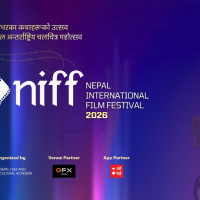- Sunday, 18 January 2026
58thAnniversary Special Supplement
Balancing Freedom Of Expression And Social Media
Freedom of opinion and expression is the first category of freedom that is ensured by Article 17 of the Constitution of Nepal. It is enlisted under the Fundamental Rights and Duties, for which people struggled hard time and again in the democratisation process of Nepal. Moreover, the Constitution envisages full freedom of the press in its preamble. These constitutional provisions are the indicators of a democratic constitution, and they are the basic tools to protect civil liberty.
The state is also not allowed to curtail such civil liberty in a normal situation without making a law. However, maintaining a balance between freedom of expression and social media operations is a challenging task both locally and globally. We see several instances of misuse of these democratic provisions that are posing a threat to democracy itself, although these rights are ensured with a vision of building a civilised society by maintaining the rule of law. A democratic government's primary responsibility is to safeguard fundamental rights, particularly freedom of expression, even when considering the regulation of social media.
Multiple platforms
There are several media outlets, which include online portals, Facebook, X, TikTok, and YouTube. As there are multiple outlets, the challenge of media operation is tough from the side of the state and other stakeholders. Mushrooming media operating channels are creating an extra burden for developing countries like Nepal. On the one hand, this is an advancement in media business and technology, and on the other, these platforms pose a threat to government regulation. Unregulated media outlets may create anarchy in society. This regulation should be balanced without curtailing the rights of the people.
Social media regulation is now more challenging because it can be handled from multiple locations. A person can handle the media from any corner of the world where internet service is available. So, the issue of media regulation has become a tough task without developing appropriate apps or methods. It is more problematic when a person residing in a foreign country uses social media to interfere with another country's internal issues.
Ignorance of rights and duties
People should be more sensitive regarding their rights and duties as provisioned in the Constitution and related laws and guidelines. However, some people are ignoring their duties and trying to exercise only their rights. Remembering duties towards society is equally important while exercising their rights.
Right to Privacy
Article 29 of the Constitution of Nepal ensures the right to privacy. The privacy of any person, his or her residence, property, documents, data, correspondence, and matters relating to his or her character shall, except in accordance with law, be inviolable. However, with the growing space of social media, a very fundamental right is violated. A YouTube operator seems effortful to bring the private issues of a person to the media, and there is no effective mechanism to check such malpractice.
This tendency is so rampant in society that the government mechanism and its efforts are not sufficient to control it.
Checking misinformation
There is a wide tendency to spread false information and deliberately mislead people with false information. There are many instances of misinformation and disinformation. Social media is misused as a tool to spread misinformation and disinformation.
Believing the rumours
This issue is slightly different from the issue relating to misinformation and disinformation. There is a trend of trusting media rumours and exaggerating the issues.
Some groups of society tend to entertain such rumours. This is more problematic, even in a developed and educated society. They do not care about the consequences and provoke the public on some issues that have posed challenges to society.
A comment on a post on social media and the sharing of such a post may cause irreparable damages compared to a single post on social media. Such comments may be misleading and misinforming. The government and concerned agencies are facing challenges in regulating and monitoring such activities as commenting and sharing social media posts by others.
Media trial
Every issue goes through a media trial before its formal announcement by the authentic agencies. Although media trials are not negative all the time, they have created some positive outcomes in formulating laws and implementing them. The formulation of laws relating to victims of loan sharks and acid attacks is the outcome of the media campaign. Moreover, the issue of media trials is affecting directly and indirectly court cases and other regular processes of state affairs.
Obstruction of justice through media trials is harmful to the nation and its people broadly. This trend should be stopped for the greater benefit of the people.
Hence, the concerned authorities, including the citizens, have a responsibility to exercise their rights by respecting their duties. Exercising fundamental rights equally invites the fundamental duties of each person. Fulfilling obligations to others equates to fulfilling responsibilities to society.
Attending to responsibilities towards others ultimately secures one's own rights in practice. Neglecting duties and exclusively emphasising the exercise of rights fails to contribute to the development of a civilised and peaceful society, a goal cherished by every enlightened individual in the current context. The Constitution and associated laws safeguard the civil liberty of freedom of expression. However, it is not an absolute right. Balancing freedom of expression and operating social media should go side by side by respecting the sensitivity of exercising rights and duties. Citizens should be more responsible while exercising their rights. Competition over misusing social media platforms has become a threat to democracy itself. The government and the people should join hands to check any form of malpractice by misusing social media. Problems will be resolved when media users become self-conscious by considering their duty towards society with a fair mind and action.
(Upadhyaya is Associate Editor of TRN)









-original-thumb.jpg)


-original-thumb.jpg)




